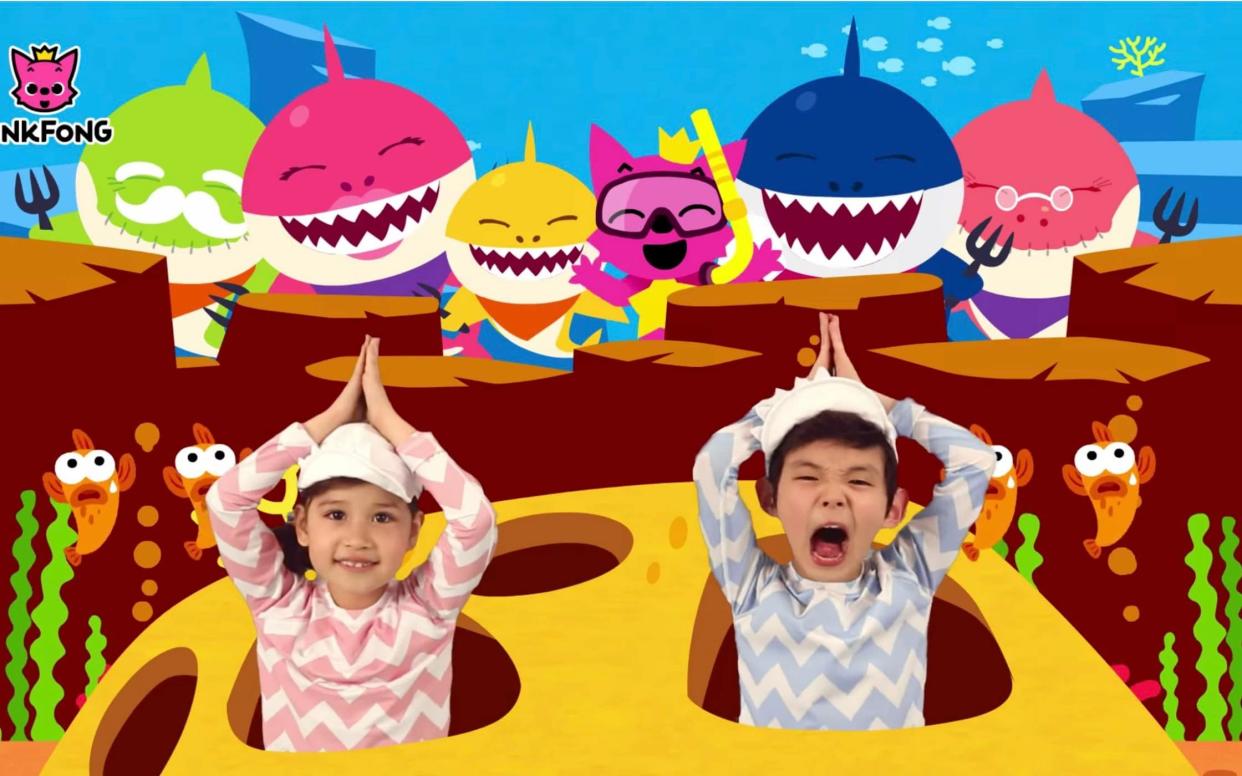Viral children's song Baby Shark embroiled in row over sexism

The children's song “Baby Shark” may have floated into Britain’s Top 40, but it is at the centre of a row over sexism, political in-fighting and alleged breach of copyright in South Korea.
Created by SmartStudy, a South Korean video and education company that controls the Pinkfong brand, the video has been watched by well over 1.65 billion viewers on YouTube, putting “Baby Shark” in the same league as the nation’s other notable musical export, Psy’s 2012 global hit “Gangnam Style”.
But “Baby Shark” has been the target of criticism at home since the latest version of what is claimed to be a traditional folk song for children was released.
In January, a local newspaper condemned the lyrics in the Korean-language version of the song.
While the English lyrics merely list the members of the shark family, The Korea Herald reported, the Korean version describes Mummy Shark as “pretty”, Daddy Shark is “strong”, Grandma Shark is “kind” and Grandpa Shark is “cool”.
In a front-page editorial, the Kyunghyang Shinmun newspaper said the lyrics reinforce sexist prejudices.
In May, the right-wing Liberty Korea Party used the song to promote its candidates’ campaigns for nationwide local elections, triggering threats of legal action for copyright infringement from SmartStudy.
The political party said the song was originally a folk song and insisted they had permission to use it from Johnny Only, a performer of children’s songs in television, who owns the copyright to a version that he released in 2012.
It has also been reported that SmartStudy is involved in a copyright complaint with Johnny Only, who has filed a claim in a Seoul court claiming that the latest version is too similar to his song.

